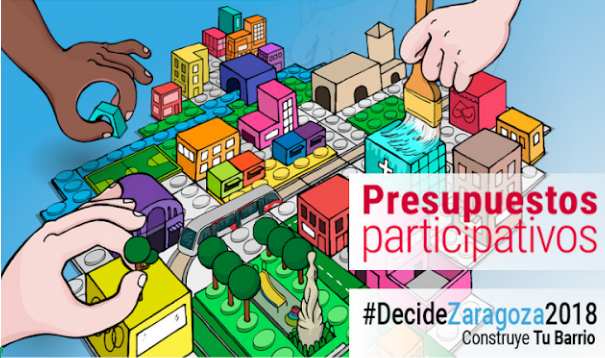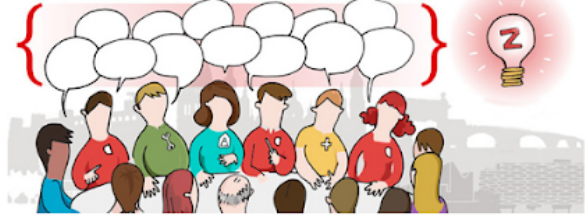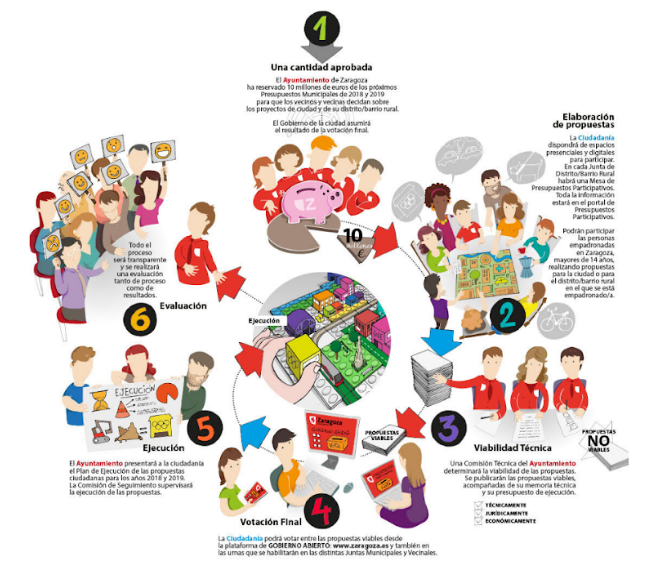Spain
City Council of Zaragoza
11-01-2018
From January of 2018 to July of 2018
06-07-2018
The City Council of Zaragoza has developed a participatory budgeting process so citizens can exercise their right to participate in the design, decision, execution and monitoring of municipal policies.
Improve the relationship between citizens and administration.
Facilitate transparency, allowing us to decide, between all and all, the destination of our taxes.
Open participation. It is a tool that allows a democratic deepening in public institutions.
Enhance collective intelligence, democratizing decision-making and fostering dialogue between neighbors.
During the votation of the proposals more than 11,500 people participated. almost 11,000 did it through the web site of the City Council of Zaragoza and the other 700 did it physically.
The City Council of Zaragoza has developed a participatory budgeting process so citizens can exercise their right to participate in the design, decision, execution and monitoring of municipal policies.

Improve the relationship between citizens and administration.
Facilitate transparency, allowing us to decide, between all and all, the destination of our taxes.
Open participation. It is a tool that allows a democratic deepening in public institutions.
Enhance collective intelligence, democratizing decision-making and fostering dialogue between neighbors.
People over 14 years old registered in one of the urban districts and rural neighborhoods of the city of Zaragoza. The presentation of proposals was made individually or on behalf of an entity.
Zaragoza is a city and a municipality of Spain, capital of the region of Zaragoza, the homonymous province and the autonomous community of Aragon.
With a population of 697 895 according to the data of the municipal register of 2018, it is the fifth most populated city in Spain, after Madrid, Barcelona, ââValencia and Seville.
Zaragoza is the fourth city in Spain according to its Economic Activity Index. The strategic sectors of the economy are the automotive industry, logistics and transport, renewable energy, business services, agro-industry and tourism.
In relation to citizen participation, in recent years different participation councils have been created and different participatory processes linked mainly to the area of ââurban planning and youth integration have been carried out with very good results.
In addition, the City Council encourages sectoral participation, an issue that was still pending in view of the important process of decentralization and administrative decentralization developed in recent years, ensuring the improvement in decision-making and ensuring the participation of the organizations involved in the large urban projects of the municipality.

Improve the relationship between citizens and the administration.
Facilitate transparency, allowing us to decide, between all and all, the destination of our taxes.
Open participation. It is a tool that allows a democratic deepening in public institutions.
Enhance collective intelligence, democratizing decision-making and fostering dialogue between neighbors.
The 2018 participatory budgeting process this year becomes a mixed process at the territorial level: with economic items for the different Urban Districts and an independent economic budget for city projects in which the possibility of making proposals that exceed the territorial scope is opened from District. It is also new to implement a specific process of participatory budgeting for all the rural neighborhoods adapted to their reality.
The participatory process will be developed in 2018, and execution, through multi-year items, throughout 2018 and 2019.

The amount allocated to the process will be 10,000,000 euros, which may be executed throughout 2018 and 2019.
a. Presentation of proposals
The citizens present their proposals on-line or at the Municipal Boards.
b. Filtered out
Adequacy of the proposals with the own neighbors and the services of the City council to adjust them to the technical needs and to the initial idea of ââthe proponents.
c. Supports
The citizens make their support and contributions on-line to the published proposals.
During the votation of the proposals more than 11,500 people participated. almost 11,000 did it through the web site of the City Council of Zaragoza and the other 700 did it physically.
There were more than 57,000 proposals of which more than 52,000 were made through the web site.
d. Prioritization
The neighbors prioritize 10 proposals in a special session of the Participatory Budgeting Table.
The top 10 and 5 of backup will be analyzed in technical and economic viability and those which pass that filter will be taken to the final votation.
e. Final votation